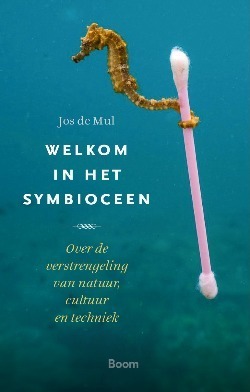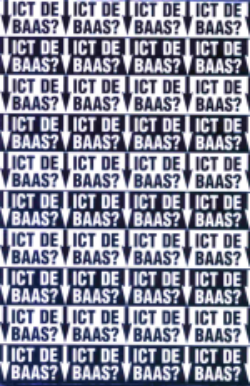Doom - or the Continuation of the Avant-Garde with Other Means
Jos de Mul. Doom - or the Continuation of the Avant-Garde with Other Means. In Modernity Today. Contributions to a Topical Artistic Discourse, edited by Saskia Bos, Edna van Duyn, Henk Slager and Theo Tegelaers. Amsterdam: De Appel, 2004, 21-29.
Het Vlietend 'Thuis'. Interculturele Vibraties
Jos de Mul. Het Vlietend 'Thuis'. Interculturele Vibraties. In Het Multiculturele Debat. Red. Rob Rutgers Gelijn Molier, Den Haag: Boom Juridische Uitgevers, 2004,. 133-38.
Intercultural Vibrations and Post-Historical Sensations
Jos de Mul. Intercultural Vibrations and Post-Historical Sensations. Pre-Modern, Modern, and Post-Modern Traditions in the Age of Globalisation. Beijing: Renmin University Press, 2004 (14 p.).
Op zoek naar de verloren tijd. Jos de Mul in gesprek met Erwin Jans
Jos de Mul. Op zoek naar de verloren tijd. Jos de Mul in gesprek met Erwin Jans." In: Erwin Jans, Margo de Poel and Bart Vieveen (red.) Op zoek naar de verloren tijd. Proust 3: De kant van Charlus, Rotterdam: RO Theater Uitgeverij IT&FB, 2004, 42-50.
欢迎来到赛博空间——讨论人类历史的另一种可能 [Welcome to Cyberspace - Yet Another Possible History of Mankind]
Jos de Mul. 欢迎来到赛博空间——讨论人类历史的另一种可能 [Welcome to Cyberspace - Yet Another Possible History of Mankind]. Beijing: Cultural Studies Online, Renmin University 2004 (20 p.)
Echo's Van Een Laatste God
Jos de Mul. Echo's Van Een Laatste God. In Idolen En Demonen, red. Linda Jansen and Nanda Oudejans, Tilburg: Universiteit van Tilburg, 2004, 134-50.
Tragisch bestuur en romantisch besturen
Jos de Mul. Tragisch bestuur en romantisch besturen. In: V. Bekkers en J. van Wamelen (red.), Openingsbijeenkomst Center for Public Innovation. Rotterdam, 2005, 43-48.
The game of life. Narrative and ludic identity formation in computer games
Jos de Mul. The game of life. Narrative and ludic identity formation in computer games. In: J. Goldstein and J. Raessens,Handbook of Computer Games Studies. Cambridge MA (MIT Press), 2005, 251-266.
Human identity is not a self-contained entity, hidden in the depths of our inner self, but is actively constructed in a social world with the aid of various expressions, such as social roles, rituals, clothes, music, and (life) stories. These expressions not only mediate between us and our world (referentiality) and between us and our fellow man (communicability), but also between us and ourselves (self-understanding). Consequently, changes in these mediating structures reflect changes in the relationship between us and our world, in our social relationships, and in our self-conception.
In recent decades the domain of expressions has been (massively1) extended by computer games and, as a result, we witness the emergence of a new tool for identity formation. In this chapter I shall examine the way computer games construct our identity in comparison with traditional narrative media, such as novels and movies. My investigation is primarily philosophical: it aims at a conceptual clarification of the relationship between ( playing) computer games and human identity. However, though this study is not empirical, one of its aims is to contribute to the theoretical framework for empirical research in this field. The theoretical starting point of my investigation is Ricoeur’s theory of narrative identity. I will argue that this theory provides a fruitful conceptual framework for understanding the way playing computer games construct personal identity. However, because his theory exclusively focuses on standard linguistic narratives, we will have to amend this theory in order to apply it within the domain of computer games.
I will develop the argument in three sections, starting with a short analysis of the concept of identity. Against this background, I explain Ricoeur’s theory of narrative identity and discuss some constraints that prevent its application to computer games. In the next section, after a short analysis of the concepts of play, game, and computer game, I discuss the narrative dimension of computer games and the interactive dimension that distinguish computer games fundamentally from narratives. Then I present an outline of a theory of ludic identity, and discuss the transformation in our present culture from narrative to ludic identity construction. Finally, I formulate some aspects of this transformation that are crucial for its evaluation.









